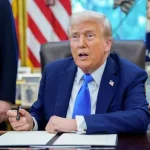QUICK FACTS
Full name: United Kingdom of Great Britain and Northern Ireland
Capital city: London
Population: 67,886,011 (21 November 2020)
GDP in current prices: USD $2,808.90 billion (2018)
GDP real growth: 1.4% (2018)
Area: 242,495 km²
Government: Unitary parliamentary constitutional monarchy
Monarch: Queen Elizabeth II
Prime Minister: Boris Johnson
Currency: Pound Sterling (£) (GBP)
HDI: 14th (2018)
Ease of doing business index: 9th (2018/19)
Time zone: GMT +0
Dialling code: 44
The United Kingdom, more commonly referred to simply as the UK, is a sovereign country in the northwest of Europe, separated from the European mainland by the North Sea to the east and the English Channel to the south. To the west lies the Irish Sea and the island of Ireland, which incorporates Northern Ireland and the Republic of Ireland, and the Atlantic Ocean.
The UK was the world’s first industrialised country and, with a strong naval history dating back to the 16th century, became a world leader as the British Empire spread to become the largest empire during the 19th and early 20th centuries. Many of its former colonies gained independence during the latter part of last century, but remain members of the Commonwealth of Nations, a political association with 53 member states, the majority of which are former British territories. It is a founder member of the UN and a permanent member of the Security Council, and was a member of the EU/EEC from 1973 until 1 January 2020. A transition period is set to end on 31 December 2020, and the UK and EU are currently negotiating their future relationship.
The UK is actually a union of four countries – England, Scotland, Wales and Northern Ireland. Great Britain is the name of the largest island in the UK (and also Europe) with an area of 229,848 km² of which roughly 57% is England, 34% Scotland and 9% Wales. Wales was formally annexed into the Kingdom of England in 1535. The Kingdom of Ireland was officially created in 1542 by an Act of the Irish Parliament recognising the English monarchy, although the two countries remained separate.
Following a union of crowns in 1603, Scotland and England joined together in a Treaty of Union in 1707 to create the Kingdom of Great Britain. The United Kingdom of Great Britain and Ireland was officially enacted on 1 January 1801 after the British and Irish parliaments passed their acts of union in 1800.
However, subsequent events in Ireland led to the partition of Ireland in 1921 and the creation of the Irish Free State on 5 December 1922, while the six historical counties of Northern Ireland remained part of the United Kingdom.
MAJOR CHANGES TO THE PROGRAM – WILL BE UPDATED SOON!!!!
Immigration Visa Options to UK
- Investor Visa (Tier 1)
- Innovator Visa, options starting at £50,000 via an endorsing body
- Start -Up Visa
Tier 1 UK (Investor) visa
What investments are needed to qualify?
Firstly, the applicant must have a minimum of £2 million (pounds) available to invest in the UK.The funds must be invested in the UK in a qualifying investment pool, these include: UK Government Bonds, if the Tier 1 (foreign Investor) obtained their visa on the basis of the Immigration Rules in place before 29 March 2019 (the Old Rules). Please note that Tier 1 (Investor) migrants who obtained their visa under the Old Rules will only be able to rely on investments in UK government bonds for extension applications submitted before 5 April 2023 and for indefinite leave to remain (Indefinite Leave to Remain) (also known as PR – permanent residence) applications submitted before 5 April 2025. Tier 1 (Investor) migrants submitting extension/ILR applications after these dates will no longer be able to rely on investments in UK Government Bonds;
Investment in a share capital or loan capital in an active and trading corporate that must be a UK registered company, other than those principally engaged in property investment, property management or property development; or pooled investment vehicles which receive funding from the UK government or a devolved government department or one of its agencies.
Tier 1 (Investor Visa) foreign migrants have the option to invest more than £2m for a fast track permanent residency.
- apply to settle after 2 years if you invest £10 million
- apply to settle after 3 years if you invest £5 million
- apply to settle after 5 years if you invest £2 million
- The company must be active and trading not in a dormant or non-trading company.
- The company must be registered with Companies House; https://www.gov.uk/government/organisations/companies-house
- Registered office in UK shores;
- Have a company registration number, be registered with HMRC for the standard tax and PAYE
- UK business bank account with frequent transactions
- The company should have at least two employees that are not directors.
- Most important is that the company is UK registered and trading, listed on a UK stock exchange and is not does not fall under the non-qualifying activities which we outline below
What UK Investments does not industry qualify for UK Investor Visa?
- The investments are not offshore companies or a trust.
- Property, Real Estate that are dependent on a return on investment via rental income
- ISAs, premium bonds
Conclusion
UK Tier 1 (Investor) requirements can be complex and it’s important you get the right support and do not breach immigration rules or else your application will be rejected by the Home Office.
You can no longer apply for a Tier 1 (Entrepreneur) visa.
If you want to set up or run a business in the UK you might be able to apply for an Innovator visa or a Start-up visa.
If you already have a Tier 1 (Entrepreneur) visa
You can still apply:
- to settle in the UK (indefinite leave to remain)
- to extend your visa
- for family members to join you
- you want to set up and run an innovative business in the UK – it must be something that’s different from anything else on the market
- your business or business idea has been endorsed by an approved body, also known as an endorsing body
- you meet the other eligibility requirements
- If you’re from the EU, Switzerland, Norway, Iceland or Liechtenstein
- If you or your close family member started living in the UK before 1 January 2021, you may be able to apply to the free EU Settlement Scheme.
- new – you cannot join a business that is already trading
- innovative – you must have an original business idea which is different from anything else on the market
- viable, with potential for growth
- Knowledge of English
- You must be able to speak, read, write and understand English. You’ll usually need to prove your knowledge of English when you apply.
- come to the UK on an Innovator visa
- switch to this visa from another visa while in the UK
- If you want to stay longer in the UK
- You can apply to extend your stay for another 3 years when your visa is due to expire. There’s no limit on the number of times you can extend.
- You may be able to apply for settlement once you’ve been in the UK for 3 years.
- 3 weeks, if you’re outside the UK
- 8 weeks, if you’re inside the UK
- If you need to go to an appointment, you may be able to pay for a faster decision. How you do this depends on whether you’re outside the UK or inside the UK.
- Who you’re applying for Apply (outside the UK) Extend or switch (in the UK)
- You £1,021 £1,277
- Your partner and children £1,021 each person £1,277 each person
- You must pay the visa fee for each person that applies at the same time as you or applies later to join you in the UK.
- set up a business or several businesses
- work for your business – this includes being employed as a director, or self-employed as a member of a business partnership
- bring your partner and children with you as your ‘dependants’, if they’re eligible
- travel abroad and return to the UK
- apply to settle permanently in the UK (also known as ‘indefinite leave to remain’) if you’ve lived in the UK for 3 years and meet the other eligibility requirements
You cannot:
- do any work outside your business, for example work where you’re employed by another business
- work as a professional sportsperson, for example a sports coach
- apply for most benefits (public funds), or the State Pension
If your application is successful, you’ll get a full list of what you can and cannot do with an Innovator visa.
- you want to set up an innovative business in the UK – it must be something that’s different from anything else on the market
- you meet the other eligibility requirements
- If you’re from the EU, Switzerland, Norway, Iceland or Liechtenstein
- If you or your close family member started living in the UK before 1 January 2021, you may be able to apply to the free EU Settlement Scheme.
- a UK higher education institution
- a business organisation with a history of supporting UK entrepreneurs
- a new idea – you cannot join in a business that is already trading
- innovative – you must have an original business idea which is different from anything else on the market
- viable – it has potential for growth
- If you’re not eligible for a Start-up visa
- You may be eligible for another type of visa to work in the UK.
- come to the UK on a Start-up visa
- switch to this visa from another visa while in the UK
- If you want to stay longer in the UK
- You cannot apply to extend this visa.
- your endorsing body assessed and agreed it
- it is active, trading and sustainable
- you have day to day involvement in it
- If your endorsement is withdrawn
- Your visa may be cut short if your endorsement is withdrawn by the endorsing body. If you want to stay longer, you must re-apply with a new endorsement before your current visa expires.
- 3 weeks, if you’re outside the UK
- 8 weeks, if you’re inside the UK
- If you need to go to an appointment, you may be able to pay for a faster decision. How you do this depends on whether you’re outside the UK or inside the UK.
- Who you’re applying for Apply (outside the UK) Switch (in the UK)
- Yourself £363 £493
- Your partner and children £363 each person £493 each person
- You must pay the visa fee for each person that applies at the same time as you or applies later to join you in the UK.
- bring your partner and children with you as your ‘dependants’, if they’re eligible
- work in another job, as well as working for your business
- travel abroad and return to the UK
- You can also switch to this visa from some other visa categories.
- apply for most benefits (public funds), or the State Pension
- work as a professional sportsperson, for example a sports coach
- settle in the UK on this visa
If your application is successful, you’ll get a full list of what you can and cannot do with a Start-up visa.
Contact the BLS team and we can guide refer you to get the correct advice. Email us now info@blsmedia.co.uk Tel: +44 (020) 7241 1589
Administration
The UK’s capital is London, which has a population of around 8.9 million and is one of the main financial centres and cultural capitals of the world. It is also home to the UK parliament which is based in the Palace of Westminster and has two houses: the House of Commons, which has 650 members elected by popular vote, and an appointed House of Lords.
Of the 650 UK parliamentary constituencies, 519 are in England (of which 14 are in Greater London), 73 are in Scotland, 40 in Wales and 18 in Northern Ireland. In addition, Scotland, Wales and Northern Ireland have their own devolved governments in Edinburgh, Cardiff and Belfast respectively, each with their own education and healthcare administrations and other varying powers. The head of state is Queen Elizabeth II who is the longest-serving English monarch, having reigned since 6 February 1952.
Economy
The UK has the fifth largest economy behind the US, China, Japan and Germany; but whilst the economy grew by 1.4% in 2018, the rate of real GDP growth has declined every year since 2014 and the economy is forecast to be overtaken by India within the next year. Services account for 79% of GDP, Industry 21% and Agriculture less than 1%.
The UK has a rich cultural and historic heritage. Being a primarily liberal democracy, creative arts and fashions have flourished and contributed enormously to global music, literature, visual art and cinema. In 2008, Liverpool – home of the Beatles who were the most influential and successful popular music band of the 20th century – was named European Capital of Culture, while Glasgow was only the third city to be awarded the title of UNESCO City of Music, with Liverpool receiving the same accolade in 2014. England is also home to two of the world’s five oldest surviving universities – the Universities of Oxford (from 1096) and Cambridge (founded 1209).
For a full report on UK Immigration or other options contact a member of BLS Team;
email info@blsmedia.co.uk
Tel +44 (0207) 241 1589





